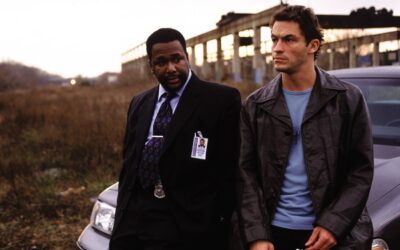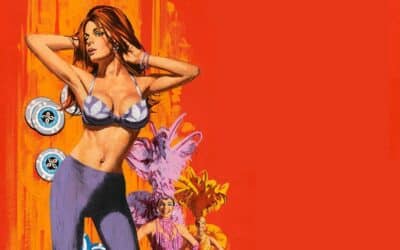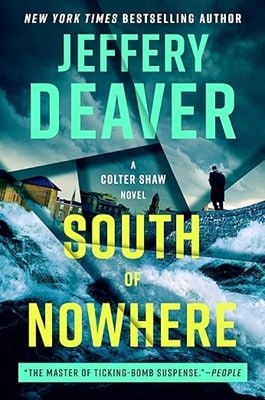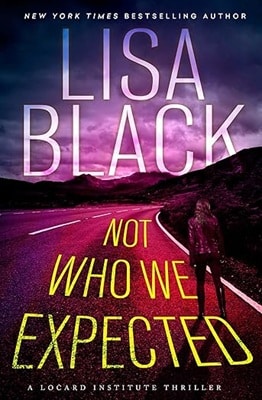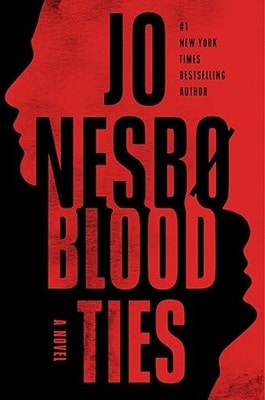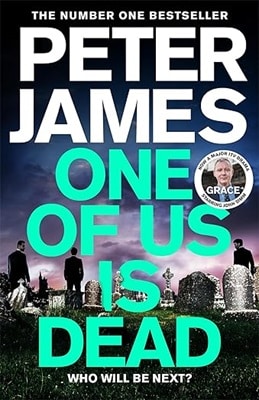
Two Psychopaths in Fiction
by Eli Wilde
Let’s compare one of the most infamous psychopaths in fiction, Hannibal Lecter, portrayed in the novel Silence of the Lambs to Anton Chigurh from the novel No Country for Old Men, with special attention on their traits. An aid to the diagnostic process is the Hare PCL-R checklist created by Robert Hare. It comprises an assessment against the following characteristics:
Glib and superficial charm. Grandiose sense of worth. Lack of remorse or guilt. Callousness and lack of empathy. Pathological lying. Cunning and manipulativeness. Shallow affect (superficial emotional responsiveness). Impulsivity. Poor behavioral controls. Need for stimulation. Irresponsibility. Early behavior problems. Anti-social behavior as an adult. Parasitic lifestyle. Sexual promiscuity. Lack of realistic long-term goals. Failure to accept responsibility for own actions. Juvenile delinquency. Breaking parole, and criminal versatility.
Hannibal Lecter – Silence of the Lambs
Hannibal Lecter is a psychiatrist, cannibal, and serial killer. He is also intelligent, charming and full of wit. Dr Frederick Chilton, the head of the mental hospital where he is incarcerated, described Lecter as impenetrable and too sophisticated for the standard tests.
Lecter spends most of his time locked up in a small cell. We learn about him through his interactions with trainee FBI agent, Clarice Starling, and recollections of his past deeds from other characters in the novel. For instance, Dr Chilton recounts how Lecter broke a nurse’s jaw to get to her tongue. At the time he was hooked up to monitors. His pulse never got over eighty-five, even when he swallowed the tongue.
On Clarice’s first visit to talk to Lecter, he describes how a census taker tried to quantify him once. He ate his liver with some fava beans and a big Amarone. Clarice mentions Lecter’s publications on surgical addictions and left-side right-side facial displays, ‘Yes,’ Lecter says, ‘they were first rate.’
Clarice is assaulted by another prisoner named Miggs, who flicks semen at her. Later, we discover Miggs is dead after Lecter convinces him to swallow his own tongue.
Lecter utilizes quid pro quo principles, something given for something else, whenever he deals with Clarice. He gave information about a serial killer to Clarice in exchange for details about her childhood nightmares. He did the same thing with senator Marin in exchange for details about her breast-feeding process.
Lecter has an in-depth knowledge of the arts and history, refencing Titian’s Flaying of Marsyas, to explain to Clarice how proper flayings are conducted with the victim inverted so they remain conscious for longer due to the blood pressure being maintained in the head.
Lecter eventually escapes his incarceration by killing two police officers. He exchanges his clothes for the officer’s uniform, cuts off his face, and covers his own face with it, so the medical team think he is the officer and take him away from the area.
During her investigation, Clarice discovers that some moths live only on the tears of large land mammals that they drink and eat. The old definition of moth was anything that gradually, silently eats, consumes, or wastes any other thing.
After his escape, Lecter has some last words for Clarice. “I have no plans to call on you,” he tells her. “The world is more interesting with you in it.”
Is Lecter afraid of anything? ”Slapping him around’s no good,” Barney, the orderly who looked after him in Chiltern’s asylum, reveals. “Threaten him with boredom, that’s all he’s afraid of.”
Despite his lifestyle, we still feel something for Lecter, right? How is that possible? Is it his charm? The way he is protective towards Clarice? Perhaps it is something to do with our souls. Maybe we can’t help but become a little attached to even the smallest act of kindness.
Anton Chigurh – No Country for Old Men
Now, let’s take a look at Chigurh and what the story tells us about him.
Anton Chigurh is a fixer, a hitman. He is going through a transformation, turning rogue and not only hunting Moss, the man he is paid to kill, but his paymasters too.
We are first introduced to Chigurh in a police station. He is cuffed from behind. A deputy talks to the sheriff on the phone, explaining how he found Chigurh with an oxygen tank attached by a hose to a stun gun, like they use at a slaughterhouse. Chigurh squats and passes the cuffs under his feet, then stands effortlessly and instantly, like he has practiced doing this many times. He walks over to the deputy, drops his manacled hands over him and they fall to the ground. Chigurh averts his face as he throttles the deputy. When the deputy stops breathing, Chigurh lays there breathing quietly, holding him. He cleans himself afterwards, picks up his air tank and stun gun and leaves.
A page later, Chigurh drives a police vehicle. He pulls a man over on the interstate and asks him to move away from the car. “What’s this about?” the man asks. Chigurh places the stun gun against the man’s head. After a pneumatic hiss and click of the plunger, the man falls to the ground, dead. “I just didn’t want you to get blood on the car,” Chigurh says, wiping his hand with his handkerchief and going about his daily routine, just like the rest of us.
A proprietor of a fuel station annoys Chigurh, “What’s the most you have ever seen lost on a coin toss?” he asks. The proprietor wants to know what he is calling for, but Chigurh repeats the request without answering. The proprietor eventually makes the right call and Chigurh gives him the coin, telling him it is his lucky coin. “Don’t put it in your pocket, you won’t know which one it is,” Chigurh says. “Anything is an instrument. Small things. Things you wouldn’t even notice. They pass from hand to hand. People don’t pay attention. And then one day there is an accounting. And after that nothing is the same.”
A hitman named Wells is hired to kill Chigurh and get the money from Moss. He tracks down Moss to a hospital. When asked to describe Chigurh, Wells says, “I guess I’d say he doesn’t have a sense of humor. You can’t make a deal with him. Even if you gave him all the money, he’d still kill you. He’s a peculiar man. You could even say he had principles. Principles that transcend money or drugs.” He gives Moss a card with his number on it.
In a hotel room, Chigurh points a gun at Wells. He explains how he has changed, caught up with himself. He describes how he let a sheriff’s deputy take him into town in handcuffs. To see if he could extricate himself with an act of will. He could not. Wells doesn’t want to talk. He keeps telling Chigurh to get it over with. When Chigurh finishes talking, he shoots Wells in the face with a shotgun and takes his phone.
Moss rings Wells’ phone. Chigurh answers. He tells Moss to bring him the money and his wife can walk, otherwise, she is accountable. ”I won’t say you can save yourself because you can’t,” he adds.
Moss doesn’t take the money to Chigurh.
Chigurh sits waiting for Moss’s wife in her bedroom. When she enters, they have a long conversation. She says he does not have to kill her. “I gave my word,” he says. “We are at the mercy of the dead here. In this case, your husband.” She says they owe nothing to dead people. “My word is not dead,” Chigurh says. “Nothing can change that.” He takes a coin from his pocket and asks her to call. She makes the wrong call. You don’t have to kill me, she repeats. “You’re asking that I make myself vulnerable, and I can never do that. I have only one way to live. It doesn’t allow for special cases. You’re asking that I second say the world, do you see?” Yes, she says and Chigurh shoots her.
We don’t feel the same about Chigurh as we do about Lecter, right? Belgian psychiatry professor Samual Leistedt and his colleague Paul Linkowski conducted a study of 400 movies and described Chigurh as the most realistic psychopath in fiction. Lecter was not typical due to his phenomenal intellect. Maybe it’s the realism that affects our emotional response to each psychopath. Maybe it is simply Lecter’s charm.
How did you do? Did you recognize any psychopathic characteristics in Lecter and Chigurh?
How many did you recognize in yourself?
Psychopaths like Lecter or Chigurh may not be close to you, but there is probably a lonely-heart racketeer, someone willing to commit a risky deal, or a person in a position of power in your life who scores high on the spectrum. If you feel like you are being used by others, then Thomas Erikson, in his book Surrounded by Psychopaths, reckons he can show you how to stop being exploited by others.
Thinking about souls, maybe we’ve got it wrong about psychopaths. Maybe their souls are not suffering. Maybe they are feeding on the tears of their victims’ families.
About the Author
Eli currently lives in the north east of England. He started writing when he was very young and stopped writing while he was still young. He didn’t pick up a pen to write again until many years later. Now that he is telling stories once more, everything feels as it should. You can find out more about the author here: eliwilde.com
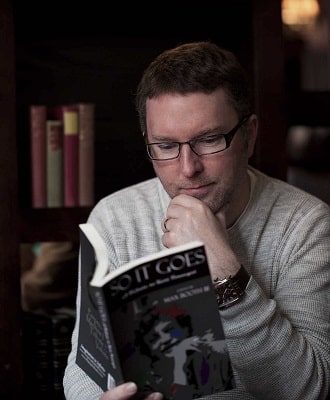
Similar Features
Criminal Fashion
Iconic Outfits and Styles in Crime Fiction
Ethics in Crime Fiction
Exploring Morality in Law and Order
Hard Case Crime
Celebrating its 20th anniversary


